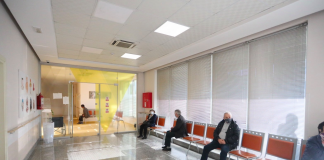Vlora has the highest number of divorces due to domestic violence. In just the first three months of the year, the Vlora Court registered 211 marriage dissolutions, 33 cases of domestic violence, and 21 protection orders. The most severe instances of violence in all its forms are predominantly recorded in rural areas. Meshtania, a 35-year-old from a village in Vlora, recounts the life challenges she faces, along with her extraordinary strength to protect herself and her three children from systematic abuse by her husband, despite the lack of support from her family.
Afrovita Hysaj
‘A woman is like a tea bag – you can’t tell how strong she is until you put her in hot water,’ as Eleanor Roosevelt once said.
Yet today, despite women’s emancipation and the rights they have gained, there are countless untold stories of women who have not yet found the strength to share theirs.
Meshtania, from Vlora and mother of three, is now 35 years old, but life’s hardships have left her weary, making even her smile seem elusive.
On the day she celebrated her son’s first birthday, a tragic accident took the lives of her husband and their 3-year-old daughter.
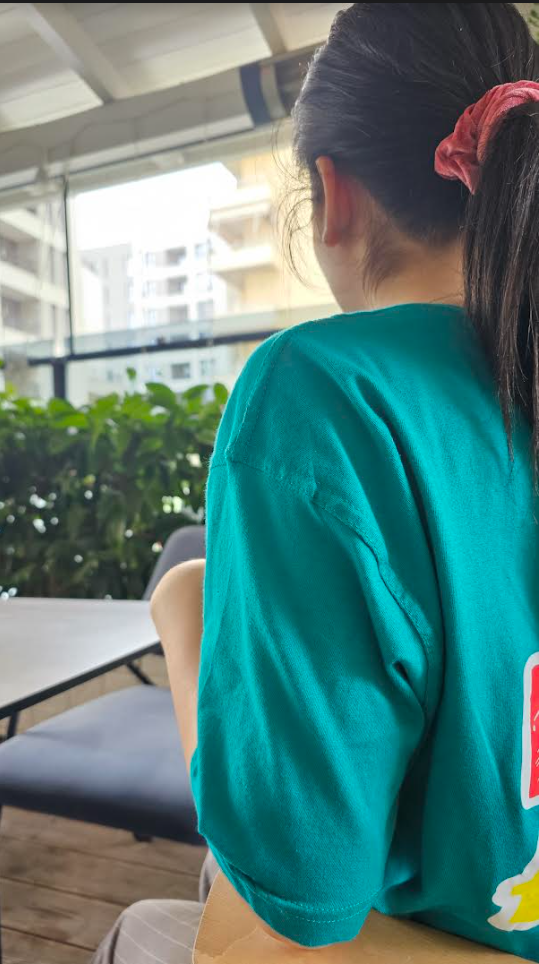
Meshtania, the Woman from Vlora Who Narrates Her Story of Survival, June 2024
Meshtania shares that she married young at the age of 17, with her husband being 21. Their marriage was initially happy until a tragic car accident in 2011 shattered their lives.
Following this tragedy, Meshtania returned to live near her family with her two children and began working 12-hour shifts at a bakery, earning only 7000 ALL per month. Despite the emotional and psychological burden, she took on a second job at a market. Balancing both jobs, she continued until severe anemia forced her to leave one.
Several years later, Meshtania was introduced to a divorced man, and with their persistence, she agreed to marry again. After two calm years, as Meshtania recounts, the violence began.
‘During my first pregnancy, he threatened to kill me if the child wasn’t a boy. Later, out of jealousy, he subjected me to extreme violence, resulting in the loss of the child I miscarried in the fifth month,’ she recounts.
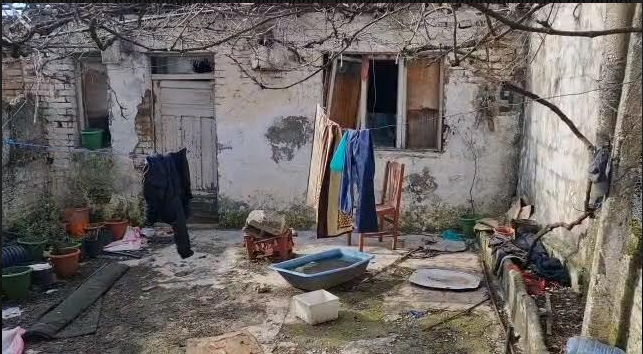
Despite the unbearable situation, Meshtane’s family was not convinced of the danger she and her children faced. Therefore, just a few months after returning to her parents, she ended up in the hands of her abuser once again. Life remained a living hell, and after the birth of her son, the violence continued, even extending to her two children from her first marriage.
Realizing that her family would not support her in escaping the abuser, the 35-year-old found the strength to seek help from the Vatra center, which provided her with legal support and modest economic assistance.
Vlora, the county with the highest divorce rate
There are many stories similar to Meshtane’s. During the period from January to March 2024 alone, the First Instance Court in Vlora registered 33 cases of domestic violence, 21 protection orders, and 211 divorces. According to Instat data for 2023, Vlora is the county with the highest divorce rate in Albania.
The main reason for divorce petitions in court, based on their content, is domestic violence. The Vlora Police Directorate reported receiving 107 complaints and 167 requests for protection orders last year. Official data confirms that in 87% of cases, it is women who report violence in couple relationships, as well as in parent-child relationships.
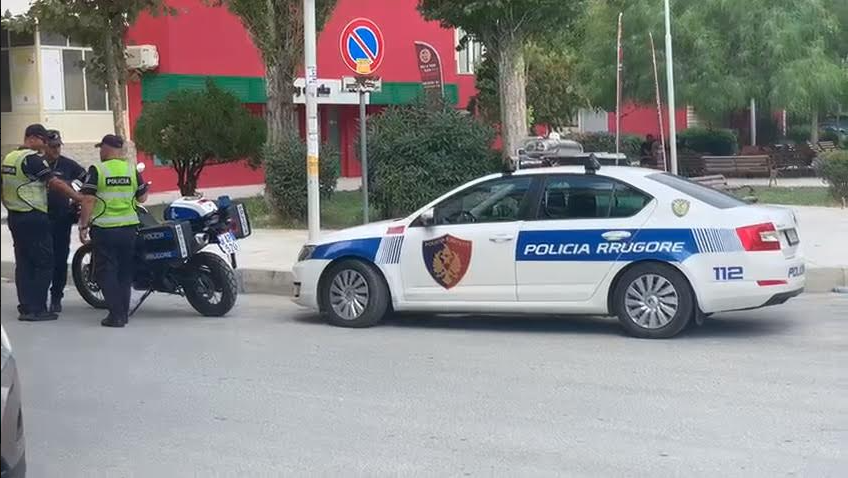
Additionally, in most cases, it is women who initiate the request for divorce.
Civil attorney Elona Mone also confirms the main causes of divorce: domestic violence, early marriages, economic problems, the husband’s emigration, marital infidelity, and in recent years, character incompatibility (something that couples hardly mentioned in previous years).
The struggle for survival of divorced women
Regardless of the reasons for divorce, there are issues in implementing the court’s decision regarding economic assistance for children, finding employment for women who are heads of households, and balancing work with childcare. A divorced woman, in particular, faces a life full of challenges as she strives to manage on her own.
We requested data from the Municipality of Vlora regarding women who receive economic support, and the figures are low compared to the increasing demands of this category.
According to the director of Social Services in Vlora, Irena Stasa, the following groups are receiving economic assistance:
– 40 widows
– 83 divorced women
– 15 unmarried mothers
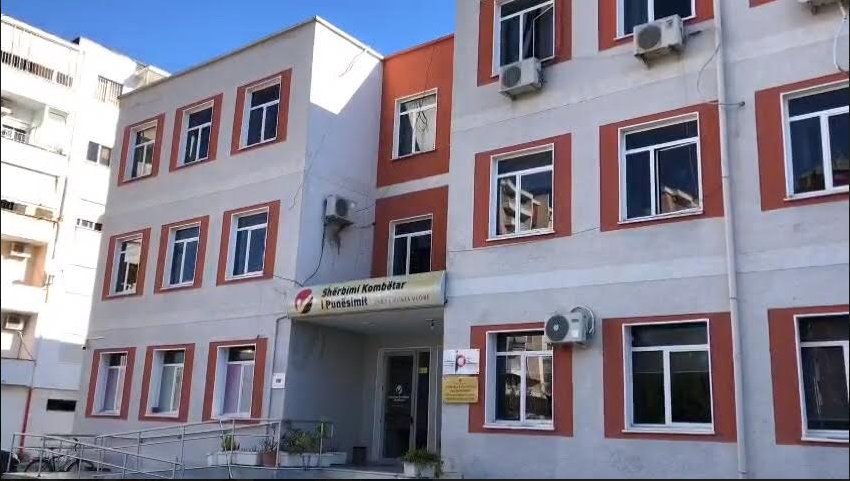
Stasa confirms that for a family of four members (for example, a mother with three children), the monetary aid is 5880 Lek (Albanian Lek). This amount decreases with fewer family members; for instance, if it is just the woman, the aid amounts to 2800 ALL , which is negligible considering the expenses needed to survive, especially when divorced women do not possess or benefit from property or other assets.
With the intervention and persistence of women’s protection associations, for the past three years, the Municipality has agreed to cover the rent bonus (up to 15,000 ALL) for mothers with children, prioritizing them for obtaining soft loans (bank-municipality agreement).
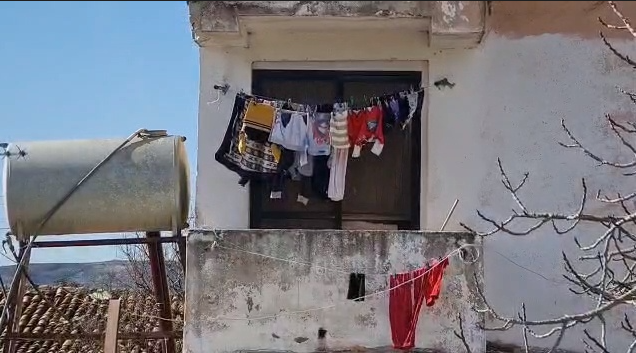
The house where the single mother lives, Vlora
The Municipality’s efforts to improve and increase aid for divorced women, according to the ‘Vatra’ Psychosocial Center, which has been operating for years in Vlora to support abused, trafficked, and economically disadvantaged women, are not sufficient. Therefore, the center has initiated discussions with the Municipality to draft a support plan for this category that aligns with market prices, covering housing, legal assistance, higher monthly economic assistance, and more.
Currently, ‘Vatra’, with its extensive experience in supporting victims of violence and trafficking, offers shelter and care for this category until they are ready to manage life independently.
From conversations with representatives of this center, it is evident that in Vlora, the cohabitation of women with continuous psychological and physical violence, oppression, intimidation, and mistreatment by close individuals, especially in villages, remains a persistent issue. A positive development in this situation is the increased awareness and willingness to report violence. The figures show that 2023 ended with a higher number of reports than 2022, although the rise in cases of psychological violence remains concerning, as it can lead to dangerous decisions. The staff at the Vatra center consider it essential for abused women to seek help and refuse to live with any form of violence, which also impacts the well-being of their children. An encouraging example is Meshtania. She now works at a fast-food restaurant, without institutional support, but has managed to live peacefully, and raise and educate her children, despite challenges, but at least free from violence.






